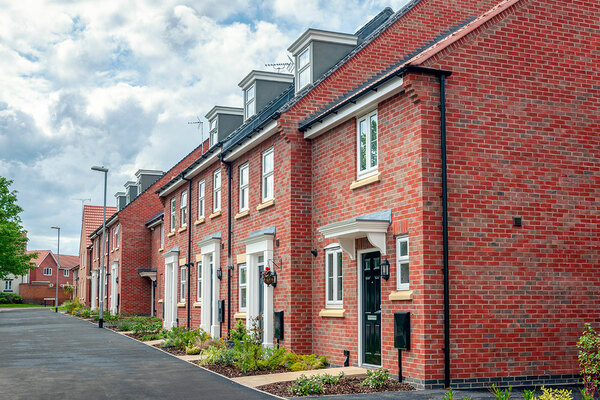You are viewing 1 of your 1 free articles

Councils and associations must talk more in order to increase housing supply
Local authorities and housing associations may have different priorities, but a common goal is increasing housing capacity. Simone Russell explores how to break down the barriers
The Building Bridges report from the Chartered Institute of Housing in 2017 said: “Local authorities and housing associations share a common purpose: to ensure that the communities they serve have access to good-quality, affordable housing. By working together rather than apart, they can achieve far more.”
I totally agree with this statement.
It is widely acknowledged that the housing needs of an area can only be met when all stakeholders join forces to deliver together.
This is on all fronts, including: planning, housing benefits administration, meeting strategic housing needs in housing allocations and as development partners.
Today there is a huge emphasis on how councils and housing associations should come together to help meet the huge shortage of affordable housing.
Aside from conversations about grant funding, this has only really gained momentum now the that shackles of the Housing Revenue Account cap have been consigned to the history books (well, for now at least) and local authorities are being encouraged by government to go forth and multiply.
This resurrection of council housebuilding has brought a renewed vigour in dialogue between housing associations and local authorities – which I think is great.
Although I am an optimist and have every faith that over time more and more new homes will be delivered through partnership working, my perception is that there’s often tension between local authorities and housing associations, of varying degrees, depending on the values and attitudes of the organisations involved.
At this point I should say that although I currently work for a local authority, my career was incubated in the housing association sector and I remain involved in a number of ways.
This includes mentoring housing professionals, attending roundtables on various issues and as a non-executive board member for a housing association.
I also spend a lot of time talking to the numerous housing associations that do business in our borough.
So I understand the passions and pressures of housing associations, many of which mirror our own.
With my team I run a landlord service to around 10,000 households (all on social rents) and we are spreading our wings into the world of intermediate rentals through our new local housing company. However, everything we do is with and for our own borough and that, I believe, is where the difference lies.
I see the role of the local housing authority primarily as a placemaker.
Our main purpose here in the borough of Welwyn Hatfield is to make sure that our ‘place’ meets local housing need and helps to create sustainable, happy, healthy and thriving communities.
On the other hand, although there are still some locally based and locally focused housing associations around the country, more and more are merging to cover vast swathes of the country, operating across hundreds of local authority areas.
How could housing associations be expected to place a particular location at the heart of their vision?
I have total respect for these large organisations, providing great-quality homes and better life chances for hundreds of thousands of our citizens.
I also appreciate that they have so much expertise to share at a time when many councils are just emerging from the development wilderness without their own home-grown talent.
But I feel that the different organisational goals stand in the way of progress.
This isn’t helped by the fact that we all have different pressures to contend with.
For housing associations there are financial challenges in the wake of a slow property market, additional investment needs for fire safety measures, regulatory scrutiny, and pressures to meet ambitious development targets.
Stock-retaining local authorities are not immune to some of these pressures, they also have politics to manage, strategic housing needs to assess and meet, and the continued loss of homes through the Right to Buy.
My view is that there needs to be a better shared understanding between local authorities and our housing association colleagues.
“Councils need housing associations to get to know local priorities so they can go as far as possible in meeting identified housing need when building homes”
For example, local authorities need to understand why housing associations have a business case for building lots of shared ownership homes while the local authority’s housing strategy really cries out for more social rented homes.
And councils need housing associations to get to know local priorities so they can go as far as possible in meeting identified housing need when building homes.
This should include setting letting policies so that the most vulnerable people have access to a home and keeping councils informed when a tenancy is at risk. I’m not moaning, honest.
The solution? Let’s talk to each other.
When joining my council, I set myself a goal of engaging personally with the chief executives of housing associations operating in our borough – all 18 of them and yes, it took a long time.
I would encourage other local authorities to do the same. I would also encourage housing associations to get out there and engage proactively with their councils; even if there isn’t a project in the pipeline yet.
“I would encourage housing associations to get out there and engage proactively with their councils”
I am really pleased to see that different areas of the housing sector are starting to come together.
Recently I attended a joint event between the National Housing Federation and the Local Government Association which focused on how we can all work better together to increase housing supply.
Nationwide, I would like to see a lot more of this so that we can encourage a wider dialogue, share good practice and break down barriers to deliver great partnerships.
I am excited at the prospect of us all achieving our goals together.
And that’s not just the optimist in me talking.
Simone Russell, corporate director for housing and communities, Welwyn Hatfield Borough Council










